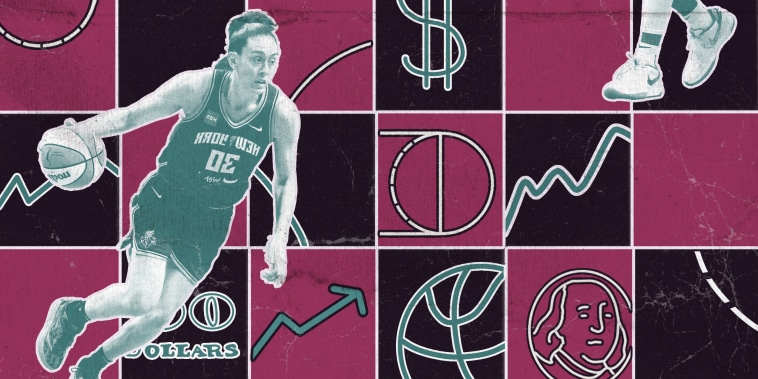
Caitlin Clark’s Pro Salary: A Stark Spotlight on the Economic Divide Between WNBA and NBA!
#### Body
Caitlin Clark’s Pro Salary – The Illumination of Economic Disparity
When Caitlin Clark decided to take the leap into professional basketball, she was met with an undeniable economic reality distinctly separating the Women’s National Basketball Association (WNBA) and the National Basketball Association (NBA). On the court, Clark is a formidable force, but her salary does not reflect the prowess she demonstrates every time she steps onto the court.
WNBA vs. NBA: Where Is the Wage Parity?
Caitlin Clark’s first contract deal in the WNBA is significantly low compared to her counterparts in the NBA. While NBA rookies earn a minimum salary of $900,000, those in the WNBA can only expect somewhere in the range of $60,000 to $70,000 on a rookie contract. The disparity doesn’t end here. The minimum salary for a seasoned NBA player can fetch up to $2.6 million, while a WNBA player with the same experience earns a maximum of $119,500. This glaring contrast throws light on the substantial economic imbalance between male and female professional basketball players in America.
Several factors contribute to this huge wage gap. Firstly, the difference in revenue generated by the two leagues is staggering. The NBA reportedly generates more than $8 billion in annual revenue while the WNBA generates about $60 million. The income derived significantly influences the player’s salaries.
Secondly, there is a discrepancy in media coverage and promotional value. NBA games are projected on a global scale, with sponsors and media networks clamoring for the right partnerships. In contrast, the WNBA often focuses on local markets and lacks the extensive international coverage of the NBA. This imbalance drastically affects earning potential and magnifies the salary divide between the two leagues.
Strides in Pay Equality: But Still a Long Road Ahead
In recent years, the WNBA has taken key strides towards pay equality. As part of the 2020 collective bargaining agreement (CBA), the WNBA committed to a 53% increase in total cash compensation, thereby significantly increasing the salary of players like Clark. However, this increase, while substantial, still leaves a massive income gap between male and female athletes.
Moreover, the CBA has also introduced other forms of compensation in terms of maternity benefits and better travel conditions. Nevertheless, the spotlight still shines on the glaring wage gap, raising questions about gender bias and inequity in professional sports.
Ultimately, Caitlin Clark’s pro

